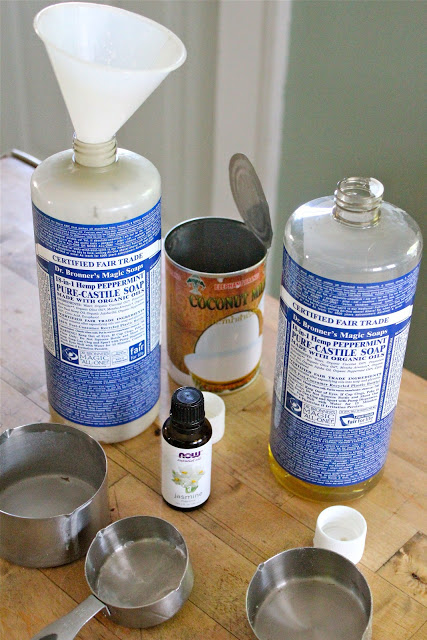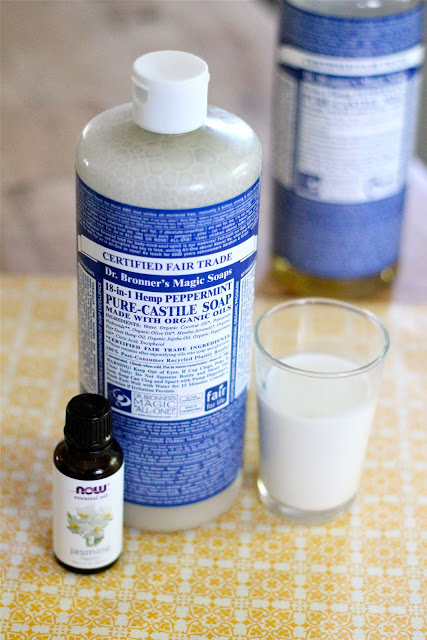We all know water is life, but for our hair? Not so much. While H2O keeps bodies hydrated and skin dewy, it’s “hard” version damages our locks. Think dull, dry, limp, and frustratingly uncooperative when it comes to styling. Recently, the question “Does hard water cause hair loss?” has been widely discussed and debated.. If you are not familiar with hard water and its impact on hair loss, follow our article to gain more insights into this issue. Read on!
WHAT IS HARD WATER?
Hard water is water that contains a high concentration of dissolved minerals, primarily calcium and magnesium. These minerals are picked up as water travels through rocks and soil, dissolving various compounds along the way. The hardness of water is typically measured in terms of the amount of calcium carbonate it contains.
When hard water is used for daily activities like bathing, washing clothes, or doing dishes, it can lead to various challenges. The mineral content in hard water may contribute to issues such as dry skin, soap scum buildup, and potentially impact the health and appearance of hair. While hard water is not considered harmful to human health, its effects on daily activities and appliances can prompt individuals to explore solutions such as water softeners or specialized products designed to mitigate its impact.
COMMON SIGNS OF HARD WATER ON HAIR
Hard water can have various unnoticed effects on your hair. Recognizing the indications of hard water on your hair is the initial step in preventing additional damage.
HAIR DRYNESS
If your hair feels unusually dry, it may be a sign of hard water damage. This is particularly evident if you continue to experience dryness even when using shampoos and conditioners designed to address such issues.
HAIR LOSS
Extended exposure to hard water on your hair may, in some instances, result in hair thinning and loss. The scalp damage caused by hard water could contribute to increased hair shedding. However, hair loss is not as prevalent as other indications of hard water and is more frequently observed in individuals with hard water who also have conditions like eczema or psoriasis.
HAIR DAMAGE AND BREAKAGE
If your hair feels more fragile than usual and you observe an increase in split ends, you could be encountering one of the consequences of hard water on your hair. Hard water makes your hair susceptible to damage and breakage, especially when brushing and styling. The increased exposure to hard water weakens your strands and follicles over time.
FRIZZINESS
Hard water exposure can result in your hair developing a ruffled, frizzy appearance. Styling your hair and maintaining its desired look becomes increasingly challenging with prolonged showers using hard water.
IS HARD WATER BAD FOR HAIR?
What does hard water do to your hair? Washing your hair with hard water leads to an excess accumulation of minerals on both the scalp and hair strands. This cumulative, consisting mainly of magnesium and calcium, can result in several negative impacts on the overall look and well-being of your hair, such as.
University of California scientists published a 2016 study, “The Effect of Hard Water on Hair Strength and Appearance,” in the Journal of Cosmetic Science. It showed that hair samples washed in hard water for 30 days exhibited decreased thickness and a ruffled appearance compared to those washed in distilled water.
BLOCKS MOISTURE
The build-up of minerals like magnesium and calcium caused by the use of hard water can hinder the moisture absorption process. This prolonged hindrance to moisture absorption can significantly impact the health and visual appeal of the hair, as moisture plays a crucial role in maintaining elasticity and shine.
WEIGHS THE HAIR DOWN
Numerous individuals experiencing hard water effects often express a sensation of their hair being weighed down, a consequence of the residual mineral deposits. This effect is likely exacerbated by the aforementioned challenges in cleansing with hard water, where recurring inadequate cleansing may lead to the accumulation of both oil and minerals.
PROMOTES SPLIT ENDS AND BREAKAGE
The growing of minerals on hair strands hinders moisture absorption, resulting in dryness that may eventually lead to hair strand breakage. Dry hair strands are particularly susceptible to breakage, including the development of split ends. This diminished moisture retention and increased vulnerability to breakage highlight the detrimental effects of mineral deposits on hair health.
PREVENTS EFFECTIVE CLEANSING
The minerals present in hard water pose a challenge to the formation of lather, hindering the efficient cleansing of both hair and scalp. This difficulty in creating lather is often responsible for the reported “filmy” sensation experienced by users after washing their hair with hard water. Studies indicate that cleansing with hard water renders bar cleansers ineffective, promoting the formation of soap scum that proves challenging to rinse off from both the hair and scalp.
MAKES THE SCALP ITCHY
The amalgamation of dryness and insufficient cleansing attributed to hard water can result in significant scratching of the scalp. Mineral deposits from hard water on the scalp can contribute to a dry and itchy scalp, potentially causing irritation and flaking. This dual impact emphasizes the potential discomfort and adverse effects on scalp health due to hard water mineral deposition.
CAUSES FRIZZ AND DULLNESS
The obstruction of moisture and the added weight on the hair can lead to its gradual manifestation as dry, lackluster, frizzy, and challenging to manage over time.
INTERFERES WITH HAIR COLOR
When you’ve colored your hair, preserving that vibrant color between salon visits becomes a priority. It’s essential to be aware that hard water can adversely affect color-treated hair, disrupting the hair color and hastening the fading process. Taking measures to counteract the impact of hard water is crucial for maintaining the longevity and vibrancy of color-treated hair.
CAN HARD WATER LEAD TO HAIR LOSS?
The direct link between hard water and hair loss is not conclusively established. While hard water may contribute to issues that could increase the likelihood of hair problems, there is no clear-cut, universally acknowledged evidence demonstrating that hard water directly causes hair loss. The impact of hard water on hair varies among individuals, and factors such as hair type, overall health, and genetics also contribute significantly to hair health. Although hard water may contribute to aesthetic concerns and impact hair texture, it’s crucial to recognize that hair loss is a multifaceted issue influenced by various factors.
For those experiencing hair loss or observing changes in hair health, seeking advice from a healthcare professional or dermatologist is recommended. They can identify specific causes and recommend personalized treatments tailored to individual circumstances.
HOW TO REPAIR HAIR THAT HAS BEEN DAMAGED FROM HARD WATER
If you aim to revive damaged hair, implementing these techniques should prove effective.
INSTALL A WATER SOFTENER SHOWER HEAD
Soft water stands in stark contrast to hard water, containing fewer minerals and maintaining a lower concentration. This characteristic renders it cleaner and more beneficial for various purposes. While the optimal approach to purifying household water involves installing a water softener, this can be a pricey investment. A more budget-friendly alternative is opting for a water softener shower head.
TRY A CITRUS AND VINEGAR RINSE
Addressing damage caused by hard water begins at the scalp. A natural solution for treatment involves a mixture of water, vinegar, and citrus juice. Apple cider vinegar, in particular, stands out as an excellent choice, as it not only lowers the hair’s pH but also provides essential vitamins like B and C, contributing to the overall health and vitality of your hair. Incorporate this simple yet effective remedy to combat the effects of hard water and promote a healthier scalp and hair.
APPLY A HAIR MASK
Revitalize your locks by incorporating a nourishing hair mask into your routine at least twice a week. Ensure thorough application by massaging the mask into the scalp and working it through to the tips of your hair. Leave the mask on for a minimum of 5 minutes to allow for optimal absorption. For added softness, consider using a leave-in conditioner with a low pH. This choice plays a crucial role in sealing the cuticles, effectively locking in moisture while keeping minerals out.
USE A CLARIFYING SHAMPOO
To rejuvenate hair damaged by hard water, incorporating a clarifying shampoo into your hair care routine can be highly effective. According to experts, the key to restoring hair to its former glory is to eliminate the mineral build-up caused by hard water. It is recommended to use a clarifying shampoo at least once a week, selecting a product specifically designed to address this issue rather than solely targeting the removal of styling product buildup. This targeted approach ensures that the shampoo effectively addresses the challenges posed by hard water, helping to revive and maintain the health of your hair.
CONCLUSION
After reading this article, you may have found answers to the question, “Can hard water cause hair loss?” While hard water is known for its adverse effects, such as reducing softness and volume of hair, the direct link between hard water and hair loss remains uncertain. Even so, addressing hair damage begins at the root, specifically the water source. The minerals present in hard water can make your hair lifeless, fragile, and difficult to manage, necessitating prompt intervention. Whether you opt for a water softener or adopt innovative hair-washing methods, the impact of hard water can be mitigated, leaving your hair healthier.
FAQS
- Is hard water hair loss Reversible?
Yes, hair loss caused by hard water may be reversible to some extent
- Is hard water bad for your face?
Yes, hard water can be harsh on the skin, potentially causing dryness, irritation, and other skin issues.
- Does hard water make skin dark?
No, hard water itself doesn’t make the skin dark. However, it may contribute to skin issues such as dryness and irritation, which can affect the overall appearance of the skin.
- Is hard water bad for health?
No, hard water is not inherently bad for health when consumed.







